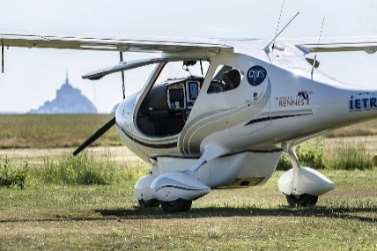Past
Organisation: Institut d'Electronique et des Technologies du numéRique (IETR)
Research objectives
The aims of this chair is to develop embedded or in situ sensors for understanding the environment, biodiversity and the health of ecosystems at different spatial and temporal scales, as well as the multiple compartments of the Earth system envelopes.
The candidate must also have demonstrated their ability to propose and implement innovative instrumental concepts – mostly on microwave radar architectures – and acquisition methods, to analyze large volumes of multi-scale data to answer major questions of the environment, biodiversity and ecosystem health. The ability to build and set up new hardware radiofrequency instruments and bring together specialists from various environmental disciplines and new methods in data sciences, like artificial intelligence. We are also quite open to candidates who might not tick all these keywords.
Expected profile
The candidates should have good-track record at the international level, some significant academic experience (senior researcher, i.e. PhD + several years of experience) and must be able to demonstrate their ability to be an independent researcher, develop their own projects and secure fundings.
Startup package
This chair is associated to a significant startup package (funding for investments, operation, recruitment of human resources, etc.).
An outstanding research environment at IETR
This chair benefits from the outstanding expertise of IETR in mastering the full radar chain: from our world-class competencies of electromagnetic wave-matter interaction and remote sensing to radar image processing & signal processing, through autonomous radar data collection by exploiting our own embedded radar systems. Another strength of IETR besides in its capability for providing airborne radar data which are directly linked to ground-truth we are able to collect. IETR is involved in several major space missions, e.g.: (i) The SWALIS radar system embedded on PIMA airplane for validating SWOT data, (ii) The KaRADOC radar system embedded on the SAFIRE French platform for validating the SKIM concept. The project will also benefit from our world-class experimental facilities in characterization electromagnetic waves.

IETR airborne multimodal engineering platform (aircraft, airfield,
sensors). This platform can be deployed for CalVal campaigns for
spaceborne Earth observation missions.
Perspective beyond the chair
This chair will lead to a CNRS research director after 4 years of tenure.
Dates and figures
Duration: 4 years
Expected start date: Fall 2023
Deadline to apply: March 24, 2023
Contact persons: Prof. Stéphane Méric, Prof. Eric Pottier